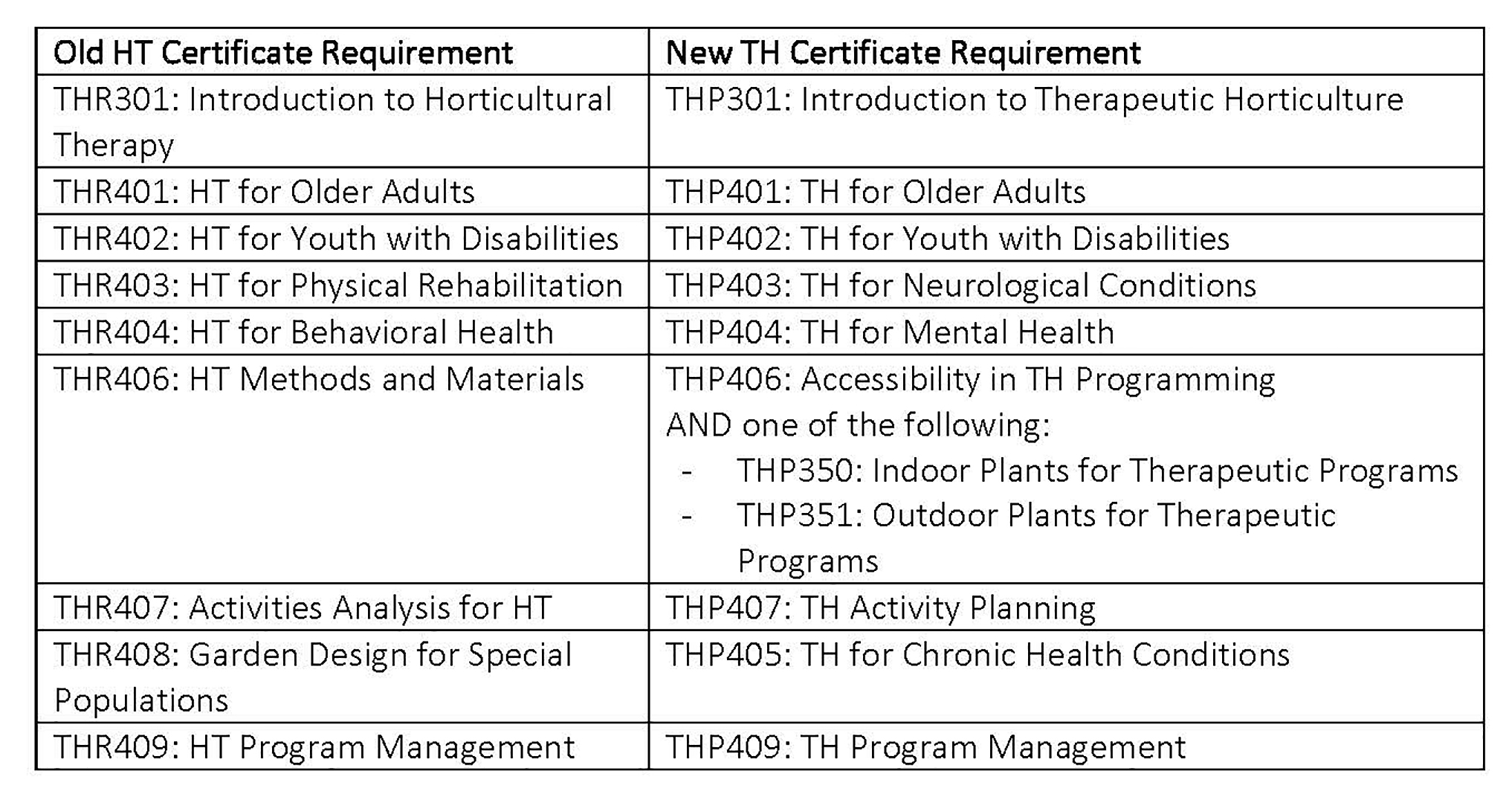
Therapeutic Horticulture Certificate Program
OVERVIEW
- Understand the characteristics and needs of service communities served through therapeutic horticulture programs.
- Develop goals, activities, adaptations, and evaluation methods that fit the specific needs of an individual or group.
- Select and care for a diverse group of plants suitable for use in indoor and outdoor settings.
- Set up, operate, and effectively market a business that offers therapeutic horticulture services.
FAQs
As of fall 2022, we are thrilled to unveil our newly re-conceptualized Therapeutic Horticulture Certificate Program. Please view these Frequently Asked Questions for more information about this program and how it differs from the former Horticultural Therapy program.
REQUIRED COURSES
Certificate students must complete 181 course hours, 10 site visit hours, and 100 hours of field experience. After completing all Therapeutic Horticulture requirements, students should contact the Program Coordinator Program Coordinator to discuss options for their field experience.
| ELECTIVES | CODE | HOURS | |
| A Trauma-Informed Approach to Therapeutic Horticulture | THP 318 | P | 6 |
| Developing Cultural Competency in Therapeutic Horticulture Programs | THP 312 | P | 6 |
| SITE VISITS | CODE | HOURS | |
| The G.R.O.W. Garden at the James J. Peters VA Medical Center | THP 514 | P | 4 |
| NYU Langone Medical Center, Therapeutic Horticulture Services | THP 525 | P | 5 |
We are currently only able to offer limited trips to observe working programs at hospitals and other institutions. Site visits remain a Certificate requirement, and we plan to resume scheduling more of them as soon as it is safe to do so.
P = Courses with a prerequisite before you can register
**For classes with no current session available, please check back when we announce the next season's catalog.
PARALLEL COURSE REQUIREMENTS FOR CURRENT CERTIFICATE STUDENTS
For those who have been working toward a Horticultural Therapy Certificate, please review the chart below to determine which new classes correlate with the previous classes required to complete your certificate:


 Cart (0)
Cart (0)
